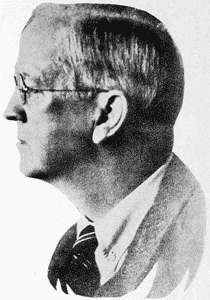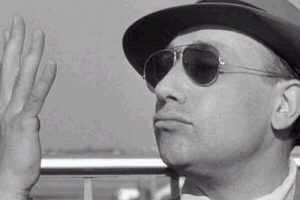A Quote by Lloyd Alexander
I only suggest to you: Will you dwell on killing this man? You wish for revenge? If you do, he has already killed you by slow poison. So, let it go. Why waste your time? His life will see to his death.
Related Quotes
I wish to suggest that a man may be very industrious, and yet not spend his time well. There is no more fatal blunderer than he who consumes the greater part of his life getting his living. All great enterprises are self-supporting. The poet, for instance, must sustain his body by his poetry, as a steam planing-mill feeds its boilers with the shavings it makes. You must get your living by loving.
Why prove to a man he is wrong? Is that going to make him like you? Why not let him save face? He didn't ask for your opinion. He didn't want it. Why argue with him? You can't win an argument, because if you lose, you lose it; and if you win it, you lose it. Why? You will feel fine. But what about him? You have made him feel inferior, you hurt his pride, insult his intelligence, his judgment, and his self-respect, and he'll resent your triumph. That will make him strike back, but it will never make him want to change his mind. A man convinced against his will is of the same opinion still.
Here's a strange fact: murder a man, and you feel responsible for his life - ''possessive'', even. You know more about him than his father and mother; they knew his fetus, but you know his corpse. Only you can complete the story of his life, only you know why his body has to be pushed into the fire before its time, and why his toes curl up and fight for another hour on earth.
The man who has lived his life totally, intensely, passionately, without any fear - without any fear that has been created in you by the priests for centuries and centuries - if a person lives his life without any fear, authentically, spontaneously, death will not create any fear in him, not at all. In fact, death will come as a great rest. Death will come as the ultimate flowering of life. He will be able to enjoy death too; he will be able to celebrate death too.
There is no man who will not be grieved at the time of his chastisement; and there is not man who will not endure a bitter time, when he must drink the poison of temptations. Without them, it is not possible to obtain a strong will. When he has often experienced the help of God in temptations, a man also obtains strong faith.
I know my time will come soon enough, but I will not dwell on it. What is the purpose? We might as well dwell on the work of our teeth or on the mechanics of our walk. It is there, it will always be there, and I don't intend to spend my glorious hours looking over my shoulder to see death's icy face.
No changing of place at a hundred miles an hour will make us one whit stronger, or happier, or wiser. There was always more in the world than man could see, walked they ever so slowly; they will see it no better for going fast. The really precious things are thought and sight, not pace. It does a bullet no good to go fast; and a man, if he be truly a man, no harm to go slow; for his glory is not at all in going, but in being.
He will see himself and life and the world as truly as our human limitations will permit; realizing the brevity and minuteness of human life, he will realize also that in individual minds is concentrated whatever of value the known universe contains. And he will see that the man whose mind mirrors the world becomes in a sense as great as the world. In emancipation from the fears that beset the slave of circumstance he will experience a profound joy, and through all the vicissitudes of his outward life he will remain in the depths of his being a happy man.
No man, however enslaved to his appetites, or hurried by his passions, can, while he preserves his intellects unimpaired, please himself with promoting the corruption of others. He whose merit has enlarged his influence would surely wish to exert it for the benefit of mankind. Yet such will be the effect of his reputation, while he suffers himself to indulge in any favourite fault, that they who have no hope to reach his excellence will catch at his failings, and his virtues will be cited to justify the copiers of his vices.
What the articles which have been written about The First Man propose is humility. The acceptance of these contradictions. Seeking an explanation is death. The lie is death in [Albert] Camus. That's why in Camus' play The Misunderstood the son dies, killed by his sister and his mother, because he lied. He never told them who he was. They killed him because they didn't recognise him.



































